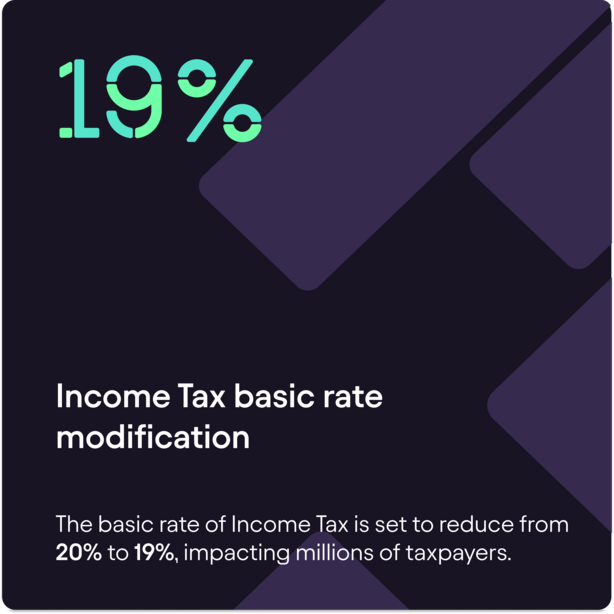Changes Announced for National Insurance and Income Tax

In a significant move set to impact millions of UK taxpayers, Labour has confirmed changes to National Insurance and income tax rates. The announcement brings into focus the adjustments anticipated to address fiscal challenges and economic disparities. Adding to existing pressures, these modifications will influence household budgets, prompting individuals and financial advisors to reassess their tax strategies.
The changes are proposed to ensure fairer tax contributions across various income brackets, potentially shifting the financial landscape for both low and high earners. Key questions remain about who will bear the brunt of these changes and how they will affect disposable incomes, savings, and investments.
By diving into the specifics of these proposals, taxpayers can better understand and prepare for the alterations ahead. Such changes may have broader implications, including societal and economic repercussions.
Labour's plans for National Insurance, Income Tax and HMRC changes have been confirmed after Keir Starmer's election win
Labour has promised not to raise National Insurance on people’s incomes. It will also not raise the basic, higher or additional rates of income tax on incomes either. Its manifesto says: “We will ensure taxes on working people are kept as low as possible. Labour will not increase taxes on working people, which is why we will not increase National Insurance, the basic, higher, or additional rates of Income Tax, or VAT.”
Labour has also promised to abolish non-dom status. It says it will replace it with a ‘modern scheme for people genuinely in the country for a short period.’
Labour also plans to close offshore trust loopholes to stop people who avoid paying inheritance tax using the method. Its manifesto states: “We will end the use of offshore trusts to avoid inheritance tax so that everyone who makes their home here in the UK pays their taxes here. Private equity is the only industry where performance-related pay is treated as capital gains. Labour will close this loophole.”
The Scope of the Changes
Labour's recent announcements highlight extensive modifications across National Insurance and income tax domains. These changes are part of a larger strategy aimed at increasing revenue for public services and closing existing economic gaps. The adjustments might seem marginal on the surface but carry significant implications, especially for middle-income groups.
Understanding the breadth and depth of these alterations is crucial for anyone impacted. The approach appears multifaceted, targeting a progressive redistribution to ensure a balanced financial responsibility among taxpayers. Labour is keen on presenting these changes as steps towards economic fairness and substantial reinvestment into essential public services.


Impact on Lower-Income Brackets
One of the central promises of Labour's tax changes is to alleviate the burden on lower-income households. "These changes aim to create a fairer system," Labour representatives have stated. However, how these changes translate into everyday financial reality remains a critical query. The designed progression is to reduce pressure on those earning less, essentially increasing their disposable income.
Various analysts suggest that while the intention is commendable, the execution and real-time impact will determine success. For those in the lower brackets, reassessing finances and possibly consulting with tax advisors will be a prudent step.
Implications for High Earners
High earners are expected to face a heftier tax load under Labour's new plan. By capturing more revenue from those with substantial incomes, the objective is to fund public services efficiently. This raises the question of potential long-term effects on savings, investments, and spending habits among the UK's wealthiest individuals.
Financial planners and wealth management services may see an increase in demand as high earners seek guidance to navigate the new tax environment. Understanding deductions, exemptions, and legal routes for minimizing tax liabilities will become crucial areas to explore.

Adjusting Household Budgets
With the impending tax changes, households across the UK will need to revisit their monthly budgets. The readjustments in tax rates may impact everything from mortgage payments to discretionary spending. The extent of these impacts will vary depending on earning brackets and existing financial commitments.
An in-depth look at how these changes affect day-to-day living expenses will help households prepare and adapt more effectively. Financial advisors can play a critical role in helping families manage these transitions smoothly.
Government Revenue and Public Services
The ultimate aim behind these tax changes is to bolster government revenue and strengthen public services. This strategy underscores Labour's commitment to reinvestment in education, healthcare, and infrastructure. Advocates of the policy believe it will promote long-term economic growth and social welfare.
Critics, however, contend about efficiency and whether increased tax revenue will indeed translate into better services. Tracking the real-world impact on public amenities over the coming years will be essential for evaluating the success of this policy shift.
Economic Implications
Beyond individual finances, the wider economic implications can't be ignored. Shifting tax burdens and increased revenue can affect everything from inflation rates to investor confidence. Labour's strategy is to foster a more equitable economic environment, but the broader impacts must be monitored closely.
Investors and businesses will need to adjust strategies to align with these fiscal policies, affecting everything from investment portfolios to hiring practices. Real-time data collection and analysis will provide ongoing insights into the overall economic health as these changes take effect.

Fun Fact: The Origins of National Insurance
National Insurance (NI) was first introduced in the UK in 1911 by the National Insurance Act. Initially, it was a system of contributions known as the "stamp" system, helping workers secure health and unemployment benefits. This pioneering social policy laid the groundwork for modern welfare states and has evolved significantly over the years to cover a range of benefits, including retirement pensions and maternal leave.
Navigating the Tax Changes
In summary, Labour's confirmed adjustments to National Insurance and income tax are substantial enough to warrant attention from all economic sectors. From individual households to corporate entities, understanding and preparing for these changes will help mitigate potential strains and make the most of new opportunities. Staying informed and proactive will be essential as these policies start to roll out.











